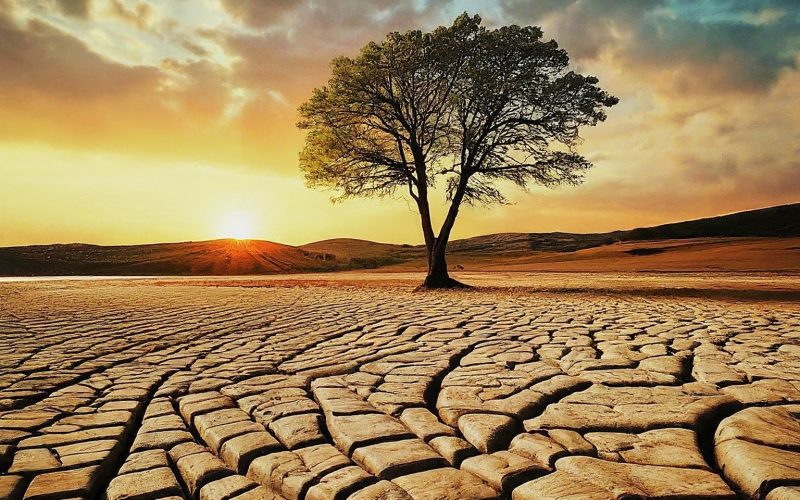Introduction
Dr. Emily Carter, a renowned environmental health expert and professor at the University of California, Berkeley, has dedicated her career to understanding the intricate relationship between climate change and human health. Her groundbreaking research has unveiled alarming trends, emphasizing the urgent need for global action.
Climate change, often perceived as an environmental issue, is fundamentally a health crisis. As our planet warms, the consequences extend far beyond rising sea levels and extreme weather events. The subtle yet pervasive effects on human health are becoming increasingly evident.
The Impact of Climate Change on Physical Health
Climate change is a silent pandemic, gradually eroding our physical well-being. Rising temperatures contribute to heat-related illnesses, such as heatstroke and dehydration. Extreme weather events, from hurricanes to wildfires, cause injuries and fatalities, while also displacing communities and disrupting healthcare services.
Furthermore, climate change exacerbates air and water pollution, leading to respiratory diseases, cardiovascular problems, and cancer. The changing climate also affects agricultural yields, leading to malnutrition and food insecurity, particularly in vulnerable populations.
Mental Health and Climate Change: An Overlooked Connection
The psychological toll of climate change is often underestimated. Witnessing the devastating impacts of extreme weather events, coupled with uncertainty about the future, can lead to anxiety, depression, and post-traumatic stress disorder (PTSD). Climate-related displacement and loss of livelihoods also contribute to mental health challenges.
Children are particularly vulnerable to the mental health impacts of climate change. Growing up in a world marked by environmental uncertainty can lead to eco-anxiety and a sense of hopelessness. It is crucial to address the mental health implications of climate change alongside physical health concerns.
Climate Change and Infectious Diseases
Climate change creates optimal conditions for the spread of infectious diseases. Warmer temperatures and altered precipitation patterns expand the geographical range of disease-carrying vectors like mosquitoes, ticks, and rodents. As a result, diseases such as malaria, dengue, Lyme disease, and Zika virus are becoming more prevalent in new regions.
Moreover, climate change-induced disasters can disrupt healthcare systems, making it difficult to control outbreaks and provide essential medical services. Building resilient health systems capable of adapting to a changing climate is essential for preventing and managing infectious diseases.

Children and the Future: A Vulnerable Population
Children are disproportionately affected by climate change. Their developing bodies and immune systems are more susceptible to the health risks associated with a warming planet. Exposure to air pollution, heat-related illnesses, and malnutrition can have long-lasting consequences for their physical and cognitive development.
Protecting children from the health impacts of climate change requires a multi-faceted approach. This includes reducing greenhouse gas emissions, improving air and water quality, and investing in child health programs.
Taking Action: Protecting Our Health and Planet
Addressing the health impacts of climate change demands urgent action at all levels. Governments must implement policies that reduce greenhouse gas emissions, invest in renewable energy, and strengthen public health infrastructure. Healthcare professionals need to integrate climate change into their practice and educate patients about the risks. Individuals can also contribute by adopting sustainable lifestyles, reducing their carbon footprint, and advocating for climate action.
By working together, we can mitigate the health consequences of climate change and build a healthier, more sustainable future for generations to come.
Informative Table: Key Impacts of Climate Change on Health
| Health Impact | Explanation |
| Heat-related illnesses | Rising temperatures increase risk of heatstroke, dehydration, and other heat-related conditions. |
| Respiratory diseases | Increased air pollution and allergens worsen asthma, bronchitis, and other respiratory illnesses. |
| Cardiovascular diseases | Air pollution contributes to heart attacks, strokes, and heart failure. |
| Waterborne diseases | Changes in water quality and availability increase risk of waterborne diseases like cholera and typhoid. |
| Vector-borne diseases | Warmer temperatures expand the range of disease-carrying insects, leading to increased cases of malaria, dengue, and Lyme disease. |
| Mental health issues | Extreme weather events, displacement, and uncertainty about the future contribute to anxiety, depression, and PTSD. |
| Food insecurity and malnutrition | Disrupted agriculture and food systems lead to malnutrition, especially in vulnerable populations. |
Comparative Table: Health Impacts of Climate Change
| Population Group | Health Impacts |
| Children | Increased risk of asthma, allergies, heat-related illnesses, and developmental delays. |
| Elderly | Higher vulnerability to heat-related illnesses, respiratory problems, and cardiovascular diseases. |
| Low-income populations | Disproportionate burden of health risks due to limited access to healthcare and resources. |
| Coastal communities | Increased exposure to extreme weather events, waterborne diseases, and mental health challenges. |
Conclusion
Climate change is an urgent health crisis that demands immediate attention. Its far-reaching consequences impact individuals, communities, and nations worldwide. By understanding the complex relationship between climate and health, we can develop effective strategies to protect vulnerable populations and build a resilient future.
It is imperative to invest in research, public health infrastructure, and sustainable practices to mitigate the health impacts of climate change. Together, we can create a healthier planet for generations to come.












